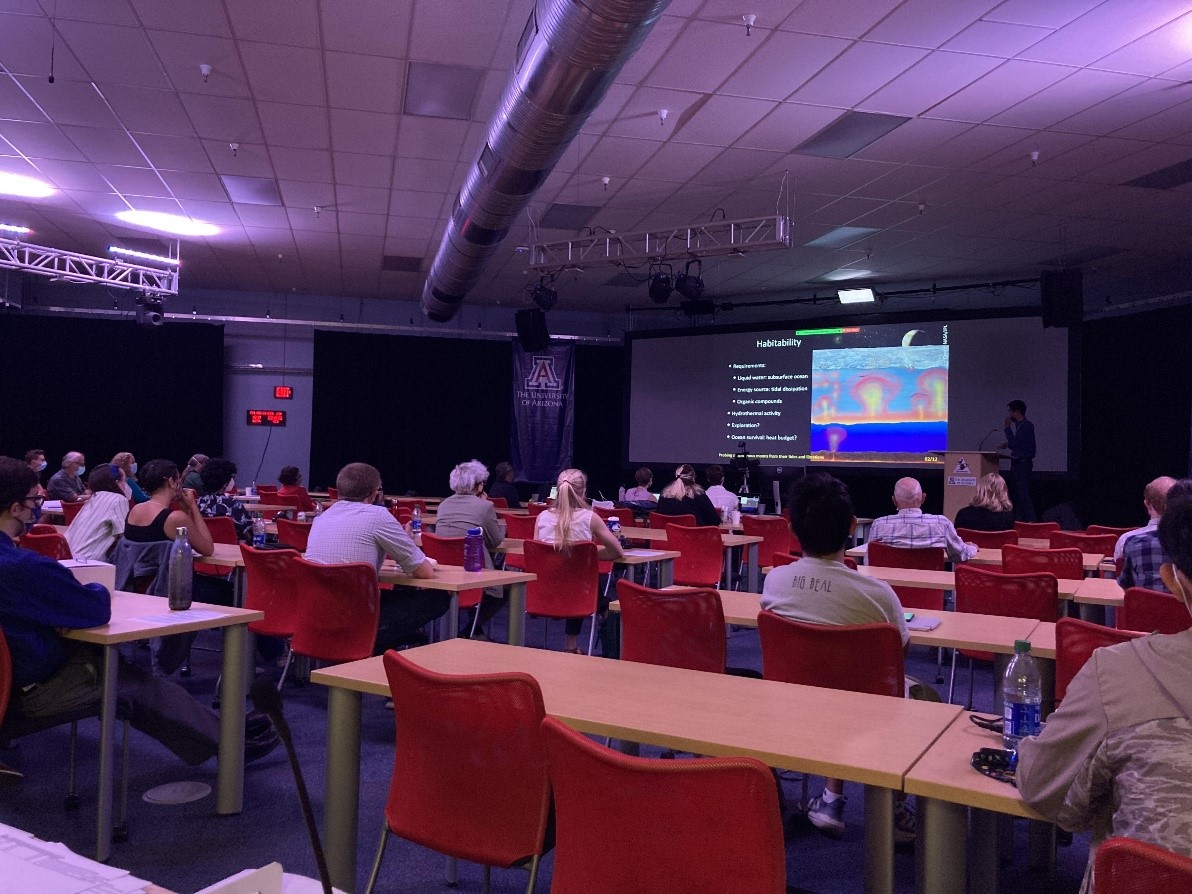Lunar and Planetary Laboratory Conference (LPLC) 2021
by Adam Battle
The Lunar and Planetary Laboratory Conference (LPLC) marks the start of the academic year for many planetary scientists in the Tucson area. This year, LPLC 2021 reflected the cautious trend toward normal operations and was hosted in a hybrid format. For one full day, participants—all fully masked—gathered at the Michael J. Drake Building to spread out in the massive auditorium and watch presentations given by faculty, staff, and graduate students. The presentations were also live-streamed to a Zoom webinar for people to watch and ask questions virtually. At lunch time, in-person participants enjoyed viewing the expansive meteorite collection housed in the Drake building and the outdoor patio space.
Despite the strange conditions this year, LPLC had the same level of attendance as previous years, with over 70 people participating. Among the invited speakers was Teddy Kareta, the winner of the “Best Grad Student Presentation” in 2020, who gave a great talk entitled No Ice, Please: 46P/Wirtanen in the Near-Infrared. The winner of this year’s “Best Grad Student Presentation” award was Galen Bergsten, who will be invited to give a talk at LPLC in 2022. In addition to the invited speakers, 23 people gave presentations about their current or upcoming research. For a conference largely designed to bring the planetary science community together, LPLC met all of its goals despite the ongoing difficulties of the global pandemic. The conference concluded with LPL director Mark Marley's keynote on Modeling Atmospheres from Giant Planets to Cool Stars.


